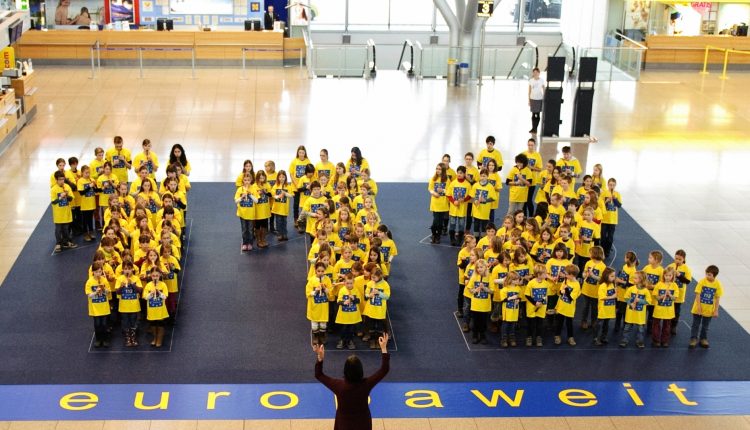
February 11, European 112 Single Emergency Number (NUE) Day is celebrated
February 11 marks the European Day of the Single European Emergency Number (NUE) 112, which citizens can use across Europe to call for help in the event of medical, police, fire and sea emergencies
This day is a key moment to set milestones in the process of implementing the service and consolidate the results already achieved.
Today is 112 Day: the annual day dedicated to raising awareness of the single European emergency number, 112
Europe is proud to come together to celebrate European 112 Day and raise awareness of 112, the European emergency number.
Many citizens are unaware of the immense number of actors it takes to provide a continuous, effective, and efficient 112 service: 112 Day is dedicated to recognising the work of all those who contribute to the European emergency services chain. Countries across Europe and beyond participate with open doors activities, award ceremonies and awareness campaigns: find out what your country is doing here.
This year, EENA intends to step back and reflect on the overall progresses in several aspects of emergency communications handling in the European Union through our 112 Day Report.
Through the lens of public safety, EENA offers a series of recommendations on how advances in information and communication technologies can be used to offer citizens the best possible help in an emergency.
112, Celebrating Progress; Identifying Improvement
EENA’s 112 Day Report provides information and recommendations on where emergency communications stakeholders can improve emergency communication, including: continuous access to 112, mobile caller location, means of access for people with disabilities, Next Generation 112, public warning, automated external defibrillator (AED) mapping, EU-level coordination, interoperability, eCall, false calls, breaches of EU legislation and general EU citizen 112 awareness.
As explored in the report, a combination of rapidly developing technology and updates to EU legislation present challenges, but also ample opportunity to increase public safety.
It is imperative that all stakeholders – be it EU Member States, public authorities, EU institutions or mobile network operators – play their part in ensuring a smooth transition to the 112 of the future.
Coordination at an EU level is the most efficient way forward, and necessary to ensure that citizens enjoy equal levels of safety across the EU. EENA is, of course, ready to contribute to this.
112 Statistics at a Glance
112 is the European emergency number, available free of charge, 24/7, anywhere in the EU.
Over 153 million calls were placed to 112 in 2021, a 3% increase on 2020. 78% of these calls were made by mobile phone.
421,000 of these 112 calls were eCalls – the emergency call service that notifies the emergency services in case of a road accident through technology fitted into vehicles.
1.5 million calls to 112 were made by roamers – international visitors to EU countries.
Read the 112 report to the European Commission
COM_2022_724_1_EN_ACT_part1_v2_kSosRQm687uxWzWYTLmGS7fUnNI_92571_gqtMItXFIzHPFJpMteJNtm8534s_93399Read Also
Emergency Live Even More…Live: Download The New Free App Of Your Newspaper For IOS And Android
EENA Conference, Three Days Dedicated To Public Safety And Emergency Calling
EENA Conference & Exhibition 2021: EENA’s Medal Of Honour For Distinguished Service During COVID-19
Cardiac Arrest, The EENA Document For Voluntary Rescuers And Citizens
Marseille, EENA Conference & Exhibition In April: Focus On Emergency Calls


